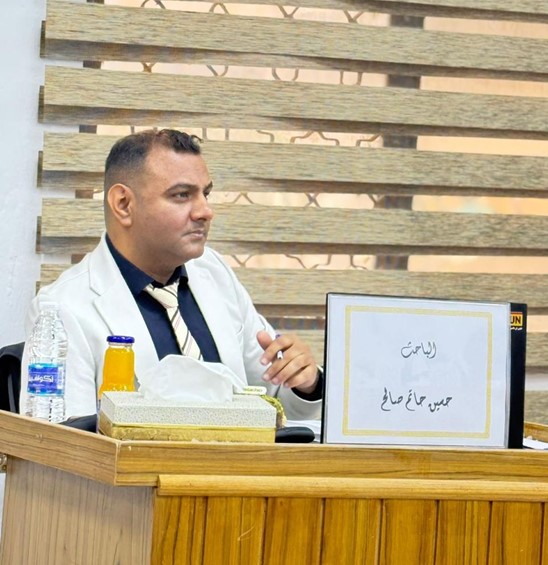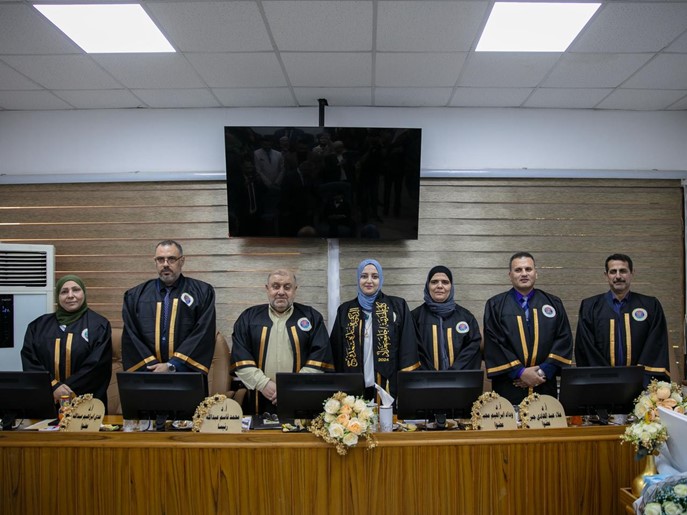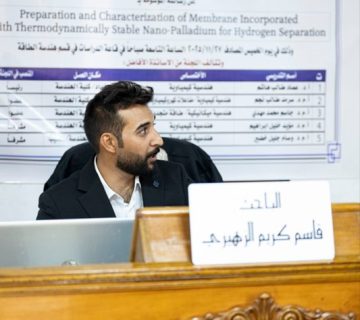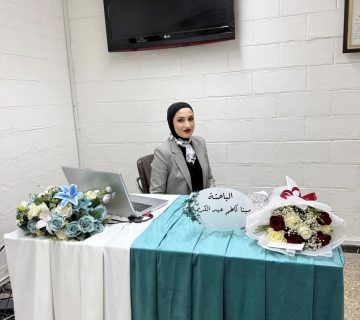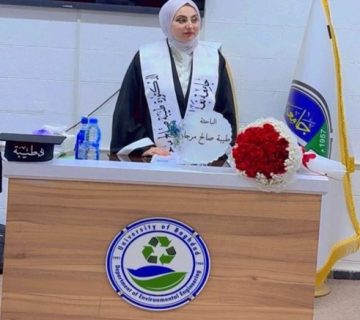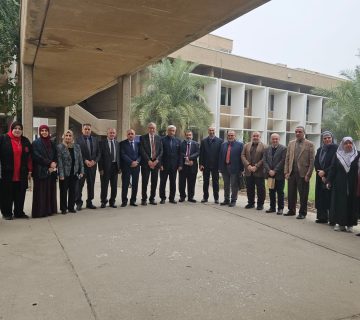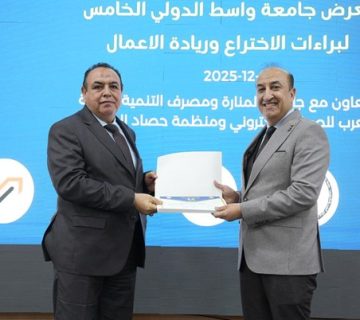It was conducted on Thursday, 7/11/2024, in Dr. Munther Al-Droubi hall the discussion of the PhD Dissertation of the student Hussein Hatem Salih, which is tagged:
“Optimization Of Fin Asymmetry Distribution in Phase Change Material Heat Exchanger”
The discussion committee consisted of names listed below:
1-Prof. Dr. Issam M. Ali (Chairman)
2- Assist. Prof. Dr. Kifah H. Hilal (Member)
3- Assist. Prof. Dr. Luma F. Ali (Member)
4- Assist. Prof. Dr. Ayser M. Flaih (Member)
5- Assist. Prof. Dr. Sajida L. Ghashim (Member)
6- Assist. Prof. Dr. Munther A. Mussa (Supervisor)
The study aims to find the optimal fin length distribution, fins angels and fins angular location for improved heat transfer during melting and solidification in a tubular phase change material PCM heat exchanger HE designed for heat storage. 21 models of horizontal PCM HEs, all with five longitudinal fins, were studied numerically. While maintaining a constant heat‐transfer area, each model depicts a unique fin length distribution design, fins angels and fins angular location combination. The first model, which serves as the reference design, has a uniform fin distribution and each fin is 30 mm long. Three fins length distribution types, upper fins angle rang (0o-90o), lower angel fins rang (0o-90o), and lower fin angular location rang (90-155) are tested. Two optimization methods used to select best combination of parameters, one factor sensitivity optimization and Taguchi method. The aim of optimization is to achieve heat transfer enhancement in melting and solidification processes.
The Dissertation included recommendations including:
- The optimal design of PCM H.E. is the model have: length distribution.
- Enhancement percentage ratio of heat charged of the optimal model compared to the reference model.
- Enhancement percentage ratio of heat discharged of the optimal model compared to the reference model.
After the scientific discussion by the members of the discussion committee, the researcher received a rating of (Excellent).

